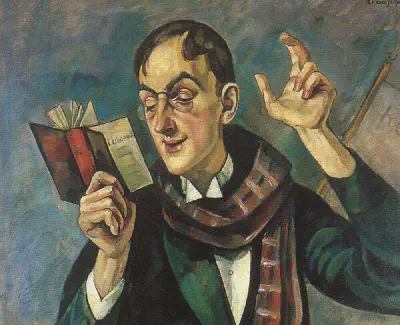Welcome
This is the first in a seven-part series on wisdom. Over this series of articles, we’re going to be asking what wisdom is (if it is anything at all), how it matters (if it matters), and how to cultivate it (if it is the kind of thing you can cultivate).
In an everyday sense, we seem to have a pretty good grasp of what we mean when we talk about wisdom. When we see somebody clambering over the barrier in the zoo to cuddle the gorilla, we think, “That seems remarkably unwise.” When we go through a difficult relationship breakdown, and we talk with a friend who gives us sound advice, we think, “I’m fortunate to have wise friends.”
But when it comes to asking what wisdom really is, things get a bit trickier. Wisdom seems to be both the most everyday thing, and also the most elevated.
Love and humility
As is well-known, philosophy or philosophia (φιλοσοφία in Greek) is the love (philo) of wisdom (sophia). This is an idea that goes back to the ancient Greek philosopher Pythagoras. And since Pythagoras, philosophers have claimed to have a particularly close relationship with wisdom. This is a view that continues to persist however many misguided or foolish things philosophers do.
In their defence, when philosophers claim to love wisdom, they are not necessarily claiming to be wise. Instead, they are claiming that wisdom is something they cherish, and something to which they aspire.
For the shadowy Greek priestess and philosopher Diotima, who was said to have been a teacher to Socrates, love is an intermediary or a go-between (the word used is metaxy). This means that lovers of wisdom exist in a kind of in-between position. In the Symposium, Socrates describes how Diotima taught him that lovers of wisdom are neither wise nor ignorant, but instead “fall in between those two extremes.”
In other words, philosophers are no different from the rest of us: they are somewhere between wisdom and ignorance. But what philosophy aims to do, at least in some accounts, is to face up to our lack of wisdom, and to help us move from ignorance to greater wisdom. Socrates, who was famously the wisest person in Athens, claimed he was wise only to the extent that he knew how much he did not know. The beginning of wisdom is seeing into quite how unwise we are.
This is why wisdom is sometimes paired with the idea of humility. As T.S. Eliot puts it in the Four Quartets, “The only wisdom we can hope to acquire / Is the wisdom of humility: humility is endless.” This pairing of wisdom and humility seems to accord with our experience of those people we consider wise, even if it does not always accord with any experience we might have of philosophers. [1]
Defining wisdom: seeing, skill and speech
But what is this thing called wisdom? The word “wisdom” in English comes from the ancient Proto-Indo-European root weid (the asterisk is there to show that this word is a reconstruction), which means “to see.” And this idea of wisdom as involving clear-sightedness is one that recurs in other traditions as well. The word “wisdom” is a distant cousin of the Sanskrit vidyā or “knowledge.”
As for the Greek sophia, it is related more closely to the idea of skill, whether in handicrafts, in the arts, in medicine, in divination or in music. Sophia is both knowledge and know-how.
In Chinese, particularly in Confucian traditions, the emphasis is more interpersonal. The word that is usually translated as wisdom is zhi (智), which has two components. One of these components, zhi (知), means something like “knowledge.” But the other, yue (曰) means “to speak.” Traditional etymological dictionaries say the original meaning of zhi (智) was to read a scroll out loud, thereby imparting its meaning to others. So zhi is not just something you have individually, but something you engage in interpersonally.
So here there are quite a few things that seem to have at least some connection to wisdom: clear-sightedness, skill in managing our lives and navigating the world, and the ability to communicate the understanding we have to others.
A contemporary starting point
But let’s try to boil this down to something more concrete. In his 1987 essay, “What is Wisdom, and Why Do Philosophers Love it So?”, Robert Nozick gives the following definition of wisdom:
Wisdom is what you need to understand in order to live well and cope with the central problems and avoid the dangers in the predicament(s) human beings find themselves in. [2]
For Nozick, wisdom brings together both understanding, and the ability to live well (whatever that means). And this inevitably involves a certain skill in avoiding the kinds of scrapes that human beings often get themselves into: like clambering over that wall to cuddle the gorilla.
Bodies and emotions
But this might still seem a bit top-down, as if wisdom is about applying disembodied knowledge to the mess of our lives. This may be one aspect of wisdom, but it is not the only one. Very often, wisdom doesn’t feel quite as top-down as this. It feels more intuitive, more immediate and (for want of a better word) squishier. It feels like something that is embodied, more rooted in the emotions, in our physicality and our living responsiveness to our environment.
One philosopher who appreciated this squishiness was Friedrich Nietzsche, who lived a troubled and turbulent life in the second half of the nineteenth century. Nietzsche’s relatively short life — he died at the age of 55, in the year 1900 — was plagued by sickness. In his mid-forties, after a mental and physical collapse, Nietzsche succumbed to mental illness and never recovered. And it is perhaps not surprising that it should take a philosopher so afflicted by ill health to recognise how the body and the mind are so very closely related.
In what is perhaps his most famous work, Thus Spoke Zarathustra, Nietzsche writes about the long-standing tradition in Western philosophy that puts the soul or the mind (psyche in Greek) on a pedestal, and that overlooks the body. “Body am I through and through, and nothing besides,” he writes. “And soul is just a word for something on the body.”
Then he writes:
The body is a great reason, a multiplicity with one sense, a war and a peace, one herd and one shepherd. Your small reason, what you call “spirit” is also a tool of your body… a small work, and play-thing of your great reason. [3]
Nietzsche wants us to take the body seriously, to understand that wisdom is not something you think your way to, but something that is expressed through the fulness of our physical, embodied being. “There is more reason in your body,” Nietzsche writes, “than in your best wisdom.”
Putting it all together
So when we are looking for wisdom, what is it we are looking for? We’re looking for something both ordinary and elusive. We’re looking for something that involves understanding, clear perception and navigational skill. We’re looking for something that helps us steer away from falling into the worst kind of scrapes. And we’re looking for something that involves our minds, but that also involves our emotions and our bodies.
This is a loose and baggy idea of wisdom, but it is a starting point. Over the rest of this series, we’ll be looking at it more deeply, and drawing on a wide range of philosophers and philosophical traditions to make new inroads into the question of what wisdom is, and how we might live wiser, better lives.
What’s in this series?
Here’s the outline:
- Part 1: What is wisdom?
- Part 2: Knowing and doing. Navigating wisdom with Aristotle.
- Part 3: The limits of wisdom. Socrates and Zhuangzi.
- Part 4: That gut feeling. Wisdom, the emotions and the body.
- Part 5: Nurturing the sprouts: Wisdom and cultivation.
- Part 6: The opposite of wisdom? Thinking about foolishness.
- Part 7: A science of wisdom?
Questions
Here are some questions to get you thinking about this week’s themes. If you are a member, dive into the comments, and let’s chat.
- Is there anybody you know who you would consider genuinely wise?
- If there are any people who you know to be genuinely wise, then how do you know they are wise?
- What are the three qualities you most associate with wisdom?
- Have you ever surprised yourself by acting uncharacteristically wisely? Or, for that matter, have you ever surprised yourself by acting uncharacteristically foolishly?
Notes
[1] See the chapter on humility in Stephen S. Hall’s book, Wisdom: From Philosophy to Neuroscience (Knopf 2010)
[2] Robert Nozick, The Examined Life (Simon and Schuster, 2000), p. 267.
[3] Nietzsche, Thus Spoke Zarathustra trans. Adrian El Caro (Cambridge University Press 2006), p. 23.
More further reading
Books and articles
Try Wisdom and Philosophy: Contemporary and Comparative Approaches edited by Andrew K. Whitehead and Hans-Georg Moeller (Bloomsbury 2016) for a great cross-cultural exploration of wisdom.
Online resources
Massimo Pigliucci gives a Stoic answer to the question “What is Wisdom?” over on Medium.



